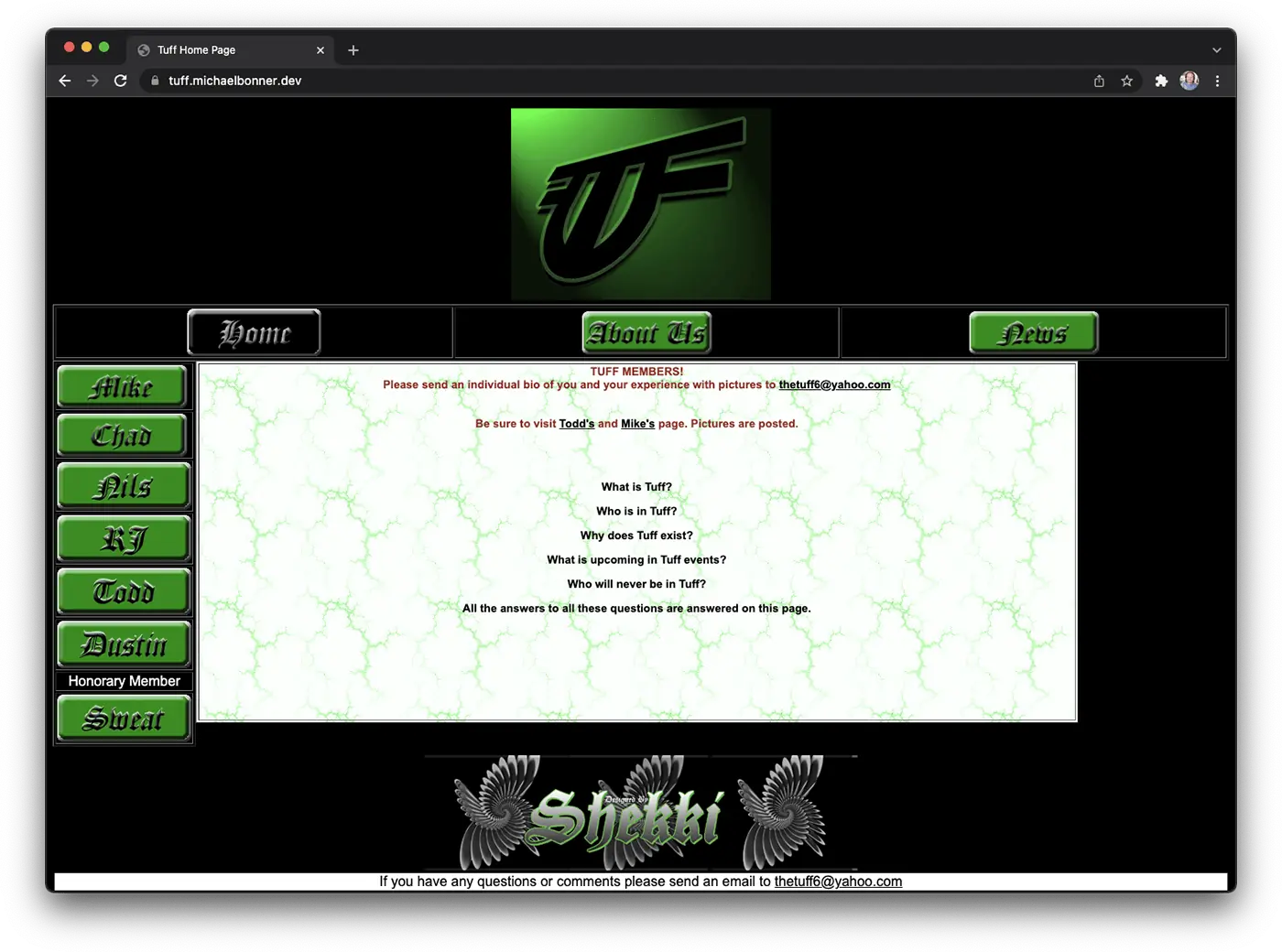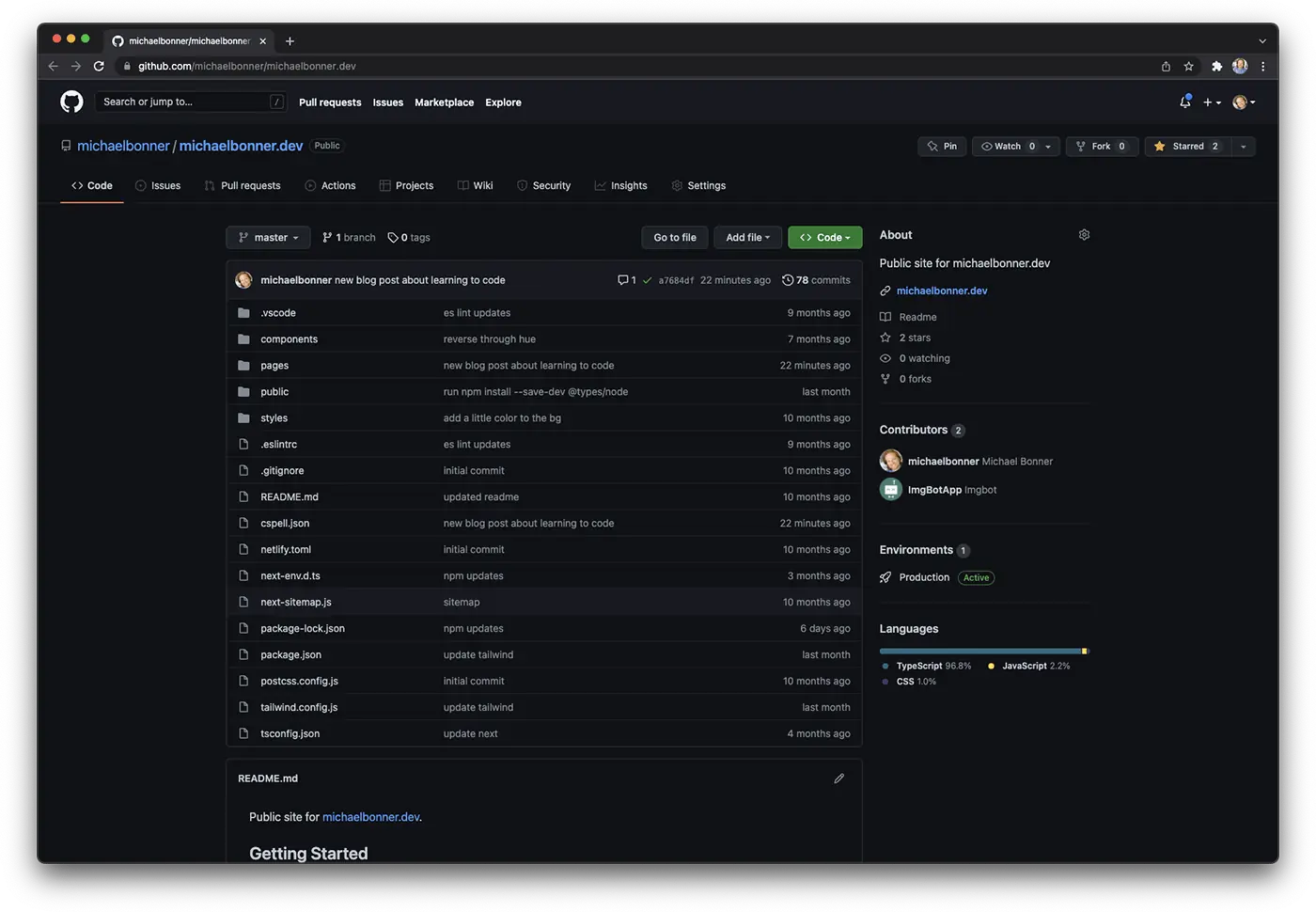Getting Started as a Web Developer in 2022
TL;DR: Learn the absolute basics, and build as much as you can.
Getting started as a web developer is hard; hopefully, I can help a little bit. Keep in mind this is only my opinion, you should find other people's opinions as well. I have found things that work for me, but I could be completely wrong on what works for you.
A real quick note about boot camps: I taught a couple of cohorts for the University of Utah and had a good experience and made great connections. Several students found work as web software engineers and are now gainfully employed. If you think that will help you and you have the money, go for it. But don't think a boot camp is a substitute for grinding your way through the learning process. It's a slog either way.
Find something simple you want to build, and force yourself to learn enough to build it
Start real simple. Could just be an “about me” page. My first public website was a dumb thing for my friends in high school. It was lame, but I was really excited about it. I made changes to it all the time. It got me excited to build more websites. Find something like that. It might be tempting to use an online website builder, but I think you'll be better off learning the basics the old-fashioned way.

Learn basic HTML and CSS. Codecademy (codecademy.com) has really good interactive tutorials to get you started. Trudge through it, and then build your small idea. It doesn't have to be pretty, it just needs to display some text.
Download Visual Studio Code (code.visualstudio.com) and start making files. VS Code will help you find syntax errors in your code and make it easier to fix them.
Launch your first website. Even if your first site is horrible, launch it. For real, just launch it. Get that thing out there. You can host your site using Netlify for free. Just zip it up and launch it. (app.netlify.com/drop) Tell your friends about your new site. Tell your parents about it. Tell me about it. (linkedin.com/in/michaelbonner/)
Build, build, build
The best way to learn is to find things you want to build and get to work. It's a lot easier to learn when you're solving a problem you want to solve. Look for tutorials about how to do the exact thing you are stuck on. Keep your appetite small, and let your curiosity carry you.
Find local businesses that don't have a web presence and build them a site. Even if it's free. Get as much experience as you can building all the sites you can. When you're done with the site put your name at the bottom with a link to find you. The link could be your LinkedIn profile, or your Instagram, or some way for people to get in touch with you. If you do good work people will notice and reach out.
Get to the next level

Learn Git (codecademy.com/learn/learn-git). Git is a tool to keep track of changes to your code. It allows you to see what changes you made over time and roll things back if you need to. You can create branches to keep new ideas separate from production-ready code, and then merge it back in when you are ready. You can have your website automatically deployed when you push your code. Everybody uses Git, and you'll lose out on job opportunities if you don't take the time to learn it.
Learn Javascript. Javascript is the programming language of the internet. Almost every site you use uses Javascript to enable user interactions, and many run javascript on the server to interface with the database. Wes Bos has a great course to get you started. (javascript30.com)
Keep learning. Watch tutorials. Listen to podcasts (podcasts.michaelbonner.dev). Read blogs. Find developer subreddits. There is so much to learn. Find areas you're passionate about and learn as much as you can.
Some good tutorial sites to learn web development things:
Some good subreddits to learn web development things:
Some good sites to learn web development things:
Learn out loud. Writing and/or streaming about what you learn is a great way to learn faster. My friend Steven has done a great job advancing his knowledge and network specifically by posting what he learns. Check out his stuff (medium.com/@steven_creates).
Get your first job as a web developer
Look at job sites and find what skills companies are looking for, and then learn the skills for the job you want. A lot of technologies in web development are open source and free to use. Learning them won't happen overnight, but over time you'll become a better developer. Exposure to new languages and frameworks will help you teach your brain to learn quickly. Be okay with being stuck on something. Go for a walk and come back to it. That frustration is part of the learning process, there's no way around it.
Be honest in interviews. If you don't know something, it's completely fine to say “I don't know” and ask questions about it. Lying about it is never the right answer. Trust me. People who have interviewed a handful of applicants can cut right through the BS and won't even entertain the idea of bringing on a developer that doesn't acknowledge the shortcomings they have.
Be hungry. Good team members bring a growth mindset and are willing to learn as much as they can from whomever they can. Be that person; especially in interviews. Take notes during interviews about the things you didn't know. Interviews are a great way to learn the things you don't know that you don't know.
Need more info
Hit me up on LinkedIn. I'm happy to chat with you about your career path and give you some advice.
linkedin.com/in/michaelbonner/
Published:
Updated: